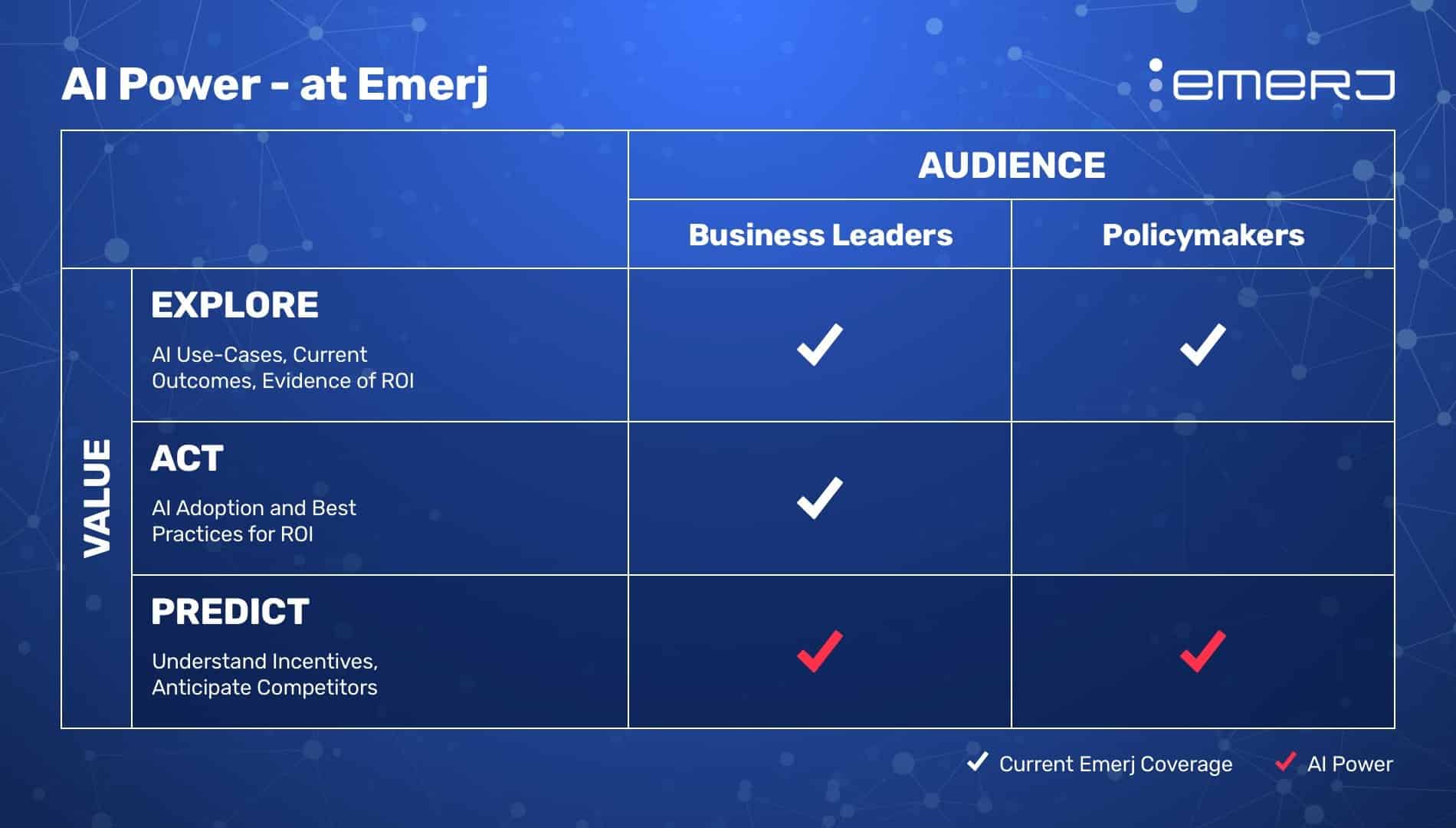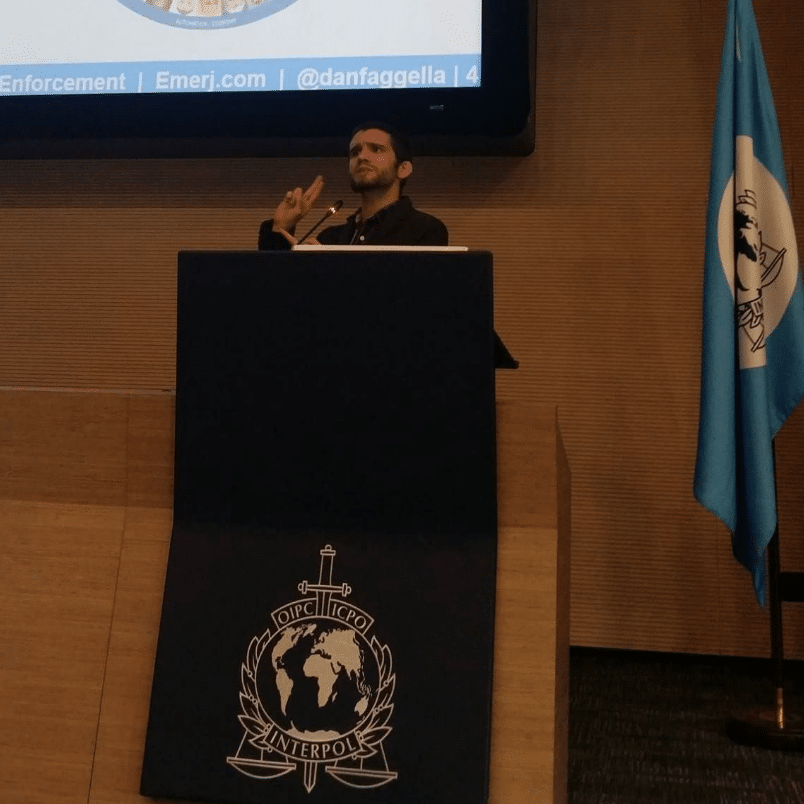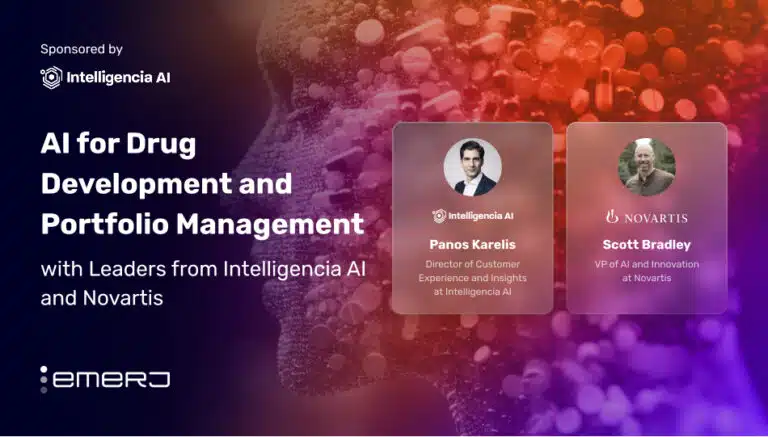Vladimir Putin has said:
“Whoever becomes the leader in [artificial intelligence] will become the ruler of the world.”
This may or may not be an exaggeration, but it is clear that advancements in artificial intelligence will set nations apart in terms of economic and military power. Fierce AI competition between powerful nations and powerful tech companies is already present today and will continue to be the case even for smaller and less technologically powerful nations and organizations.
For this reason, I’ve decided to start a new article series examining the dynamics of AI power.
The executives and leaders who read Emerj are not only interested in the cutting edge of AI trends and applications (which we cover in great depth already), they’re interested in understanding who will win and lose in this new era of AI capabilities.
Our work at Emerj Artificial Intelligence Research almost always involves helping organizations move beyond current AI applications, and into an understanding of the competitive landscape they’re operating within.
Some of my most interesting and insightful conversations have occurred outside the confines of industry-specific interviews and events. I’m increasingly called upon to present for the United Nations, the World Bank, INTERPOL, and other global organizations – and at these events, I’ve had conversations about national AI strategies and competitive dynamics – but little of this is able to be fit into our normal editorial flow.
That’s why created this new series on AI Power.
Why AI Power
The majority of our coverage focuses on exploring AI use-cases and helping leaders choose better AI strategies for a better ROI. In contrast, “AI Power” will focus on anticipating the moves and understanding the incentives of global AI players – such as governments, companies, and regulating bodies:

Here’s why the topics of AI power should be discussed, and how leaders can benefit from understanding them:
Business and Government Leaders Should Know How to Win
The resources and talent of artificial intelligence are in the hands of tech giants and the world’s most scientifically advanced nations.
By learning the strategies and tactics of the most AI-enabled companies, leaders can see better paths forward for their own companies, and anticipate the incentives and strategies of there competitors. Questions beg to be answered:
- When is it advantageous to compete or cooperate?
- When should one invest heavily in AI talent, or in data infrastructure?
- How is a competitor most likely to undermine our efforts?
Business and Government Leaders Should Understand Regulation and Governance
As laws and standards evolve within and between countries, the ways of doing business and the modes of governing people will change, and successful companies and countries will work with these changes.
We already see nations and countries getting involved in lawmaking in order to see their interests represented in future laws.
Technologically advanced countries and companies will bring a different set of priorities to the governance conversation than less advanced countries and companies.
Policymakers Should Know What to Govern

Law, in large part, serves to fetter or bend the motives of man towards peace and prosperity. Human motivations (good and bad) have been the same for millennia, but the way we fulfill those motives is changing quickly with the advent of artificial intelligence and other digital technologies.
In the decades ahead, it’s safe to say that laws will have to alter and mold themselves to the new conditions and capabilities of companies and countries.
Policymakers should understand the applications in the world today, and the motives that might make new AI tools a force for good or bad.
It’s always been our job at Emerj to cover the cutting edge of AI in pharma, AI in banking, AI in defense, etc – and to provide this information openly for leaders, employees, and policymakers – to facilitate an open conversation about the state of the art.
In addition to a “lay of the land” of applications, I believe that for public policy it’s critical to look at a “lay of the land” of strategic incentives. That’s what this series will be about.
People Should Know How Humanity Might Achieve its Common Goals
AI will be a force that pushes and pulls business, government, and society.
It might lead to unacceptable levels of inequality, or to a more aggregately abundant world. It might lead to exaggerated nationalism and paranoia, or it might facilitate a more cosmopolitan world.
If people can plainly see the way global competition and cooperation is playing out, and understand the ramification of those trends, then we might be more likely to create a world where power benefits humanity as a whole.
This applies to public discourse, to the creation of national policies, and to international governance as well.
Power is Old – Here’s What is New
When I think about the far future of artificial intelligence, I tend not to use science fiction as a reference.
Instead, I prefer the following:
- To study the cutting-edge applications and trends of AI (which we track across industries every day here at Emerj)
- To read as much biography and history to understand the dynamics of power of the human past (from the Treaty of Westphalia to the biography of Pericles, from the First Emperor of China to the political strategies of Bonaparte)
- To imagine how competition and cooperation will play out with new technologies, and old, hardwired human nature
The dynamics of power don’t change, mostly because human nature and human motivations haven’t changed. We read about the military tactics, political slander, and cunning expression of human motives in the Peloponnesian War, and we understand that same motives that move human beings today.
“Passions change, politics are immutable” – Napoleon
It is probable that if we study the conditions and reasons for altruism in the ancient world, we’ll understand what makes it possible in the present, also.
Here’s what’s different about the world today:
- Small World: Hyper-connected societies and economy makes truly for truly global issues that humanity must deal with together (i.e. Global warming, nuclear non-proliferation, post-human intelligence)
- AI and Technology: The technologies available to individuals and groups are vastly more powerful (notably: Artificial intelligence).
The entire AI Power series will focus on how AI is changing the game of power, and how leaders can stay ahead of the curve.
I spend an inordinate amount of my time thinking about the grand, long-term implications of artificial intelligence and international relations, and reading about past conflicts, resolutions, and revolutions in history. Until now I haven’t had a place to open this conversation up with our hundreds of thousands of Emerj readers.
In this series I’ll aim to explore these topics in earnest, and flesh out how AI is impacting power in industry and in politics. The topic is complex, and but to quote Emerson:
“…happy beyond my expectation, if I shall truly draw the smallest arc of this circle.”
The Role of Understanding Power in AI Policy and Governance

It’s always been our job at Emerj to cover the cutting edge of AI in pharma, AI in banking, AI in defense, etc – and to provide this information openly for leaders, employees, and policymakers – to facilitate an open conversation about the state of the art. When called upon to present at the United Nations or World Bank, this has largely been the end that those institutions had in mind.
In addition to a “lay of the land” of applications, I believe that for public policy it’s critical to look at a “lay of the land” of strategic incentives.
Nations and international organizations will determine how to govern. In this AI Power series I’ll explore what technologies and what incentives may need to be governed in the first place.
Executives and leaders will determine how to they will compete in the marketplace. In this AI Power series I’ll explore what technologies and what incentives may determine the winners and losers of that competition.
That is what this series AI Power is ultimately about, and what I hope to explore in depth with every article in the series.
Each Monday, I’ll be exploring the dynamics of AI and power at work in business and government, and extract the transferrable lessons for modern executives who need to win in the competitive marketplace today.
What to Expect from AI Power in the Weeks Ahead
Readers can expect to two takeaways from every AI Power article:
- Insight into the motives and AI strategies of powerful countries and companies
- Insight into the tactics that companies and governments are using today to leverage AI to reach their goals
My first round of AI Power articles will aim to hit on important issues today – and moving forward – I’ll be fielding more and more ideas for this series from readers like you (feel free to ping me on LinkedIn if there are AI power dynamics that you’d like to see explored as this series takes off).
Serving leaders in enterprise and government has always been our aim at Emerj (in the vein of Plutarch), and I hope that this series proves a useful addition to decision-makers who have to make sense of this shifting competitive landscape around artificial intelligence.
Here’s a short list of topics we’ll be covering in the coming weeks.
- (May 6th) “AI Ethics” as a New Path for Power. How regulation is aiming to challenge innovation in the struggle for power, and control of the future military and economic advantages of AI.
- (May 13th) The USA-China AI Race – 7 Weaknesses of the West. The US presumes that its democratic values – such as free speech and freedom of the press – enhance its competitiveness on the international stage… but that’s probably not the case anymore.
- (May 20th) Data Dominance and AI Power – How Monopolies are Born. How winning users and data collection often leads to monopolistic power in an industry, and astronomically greater power in politics.
See you next week.




















